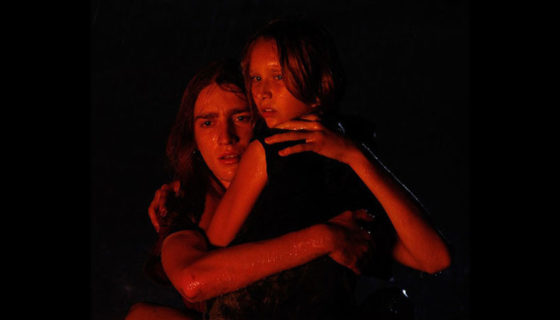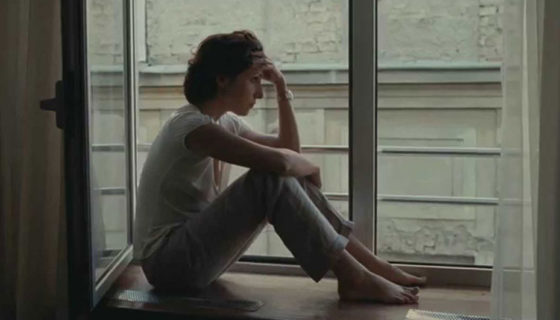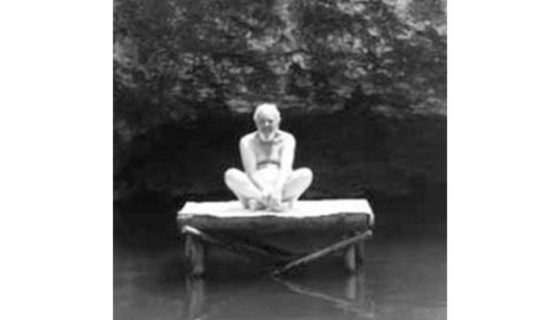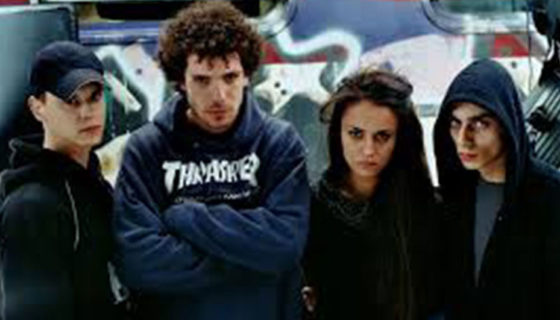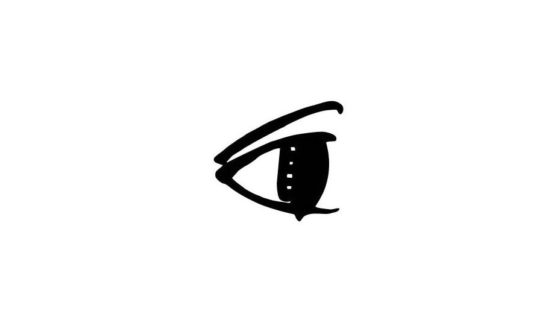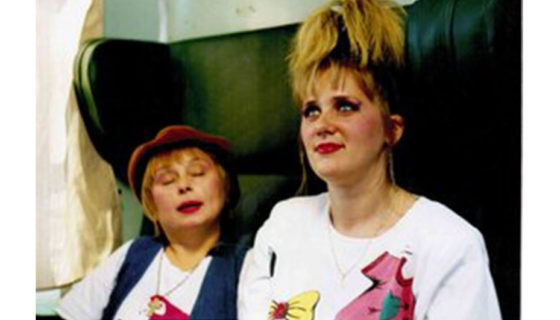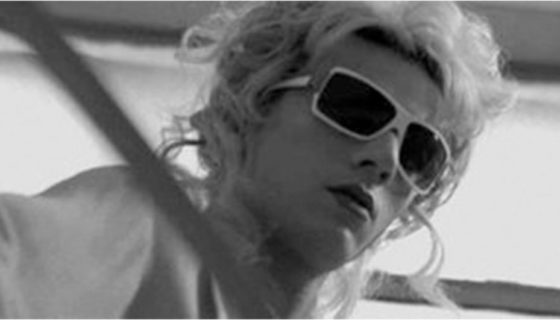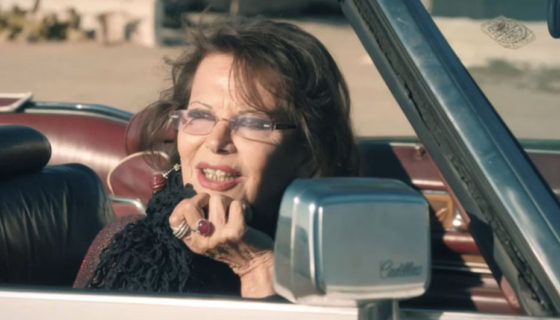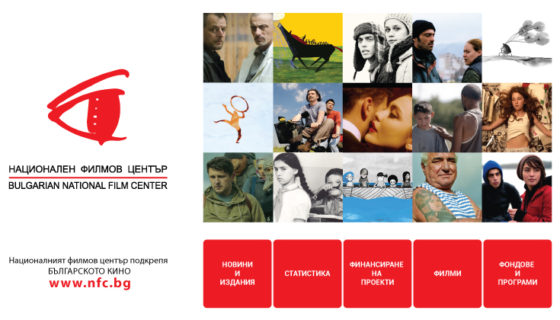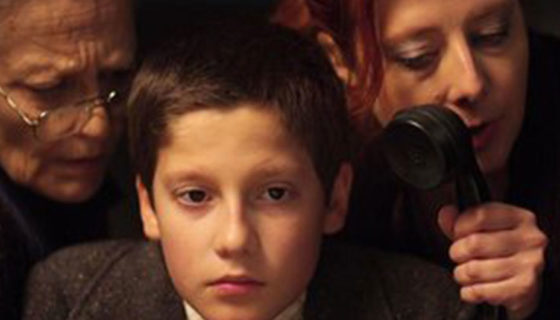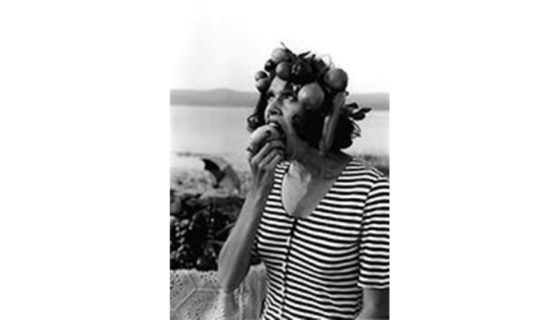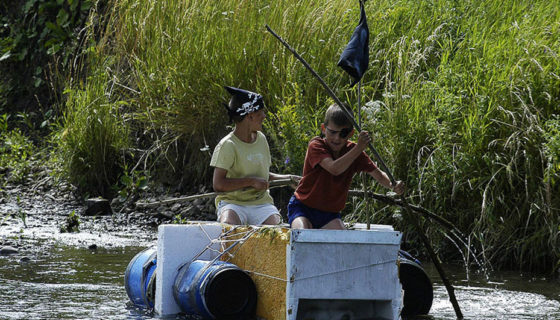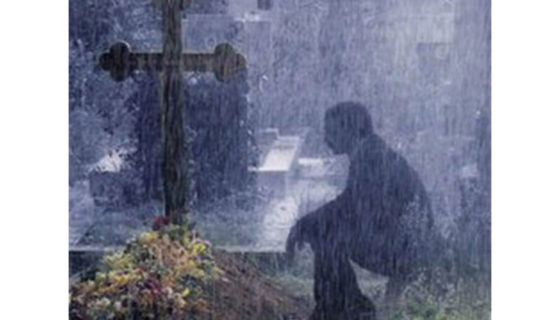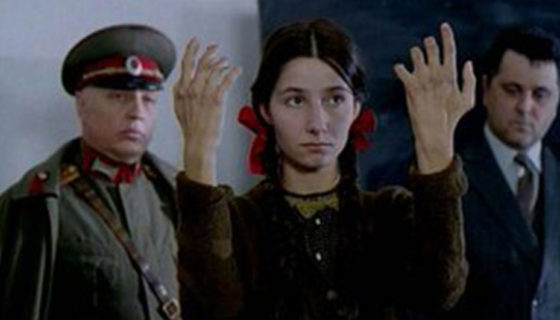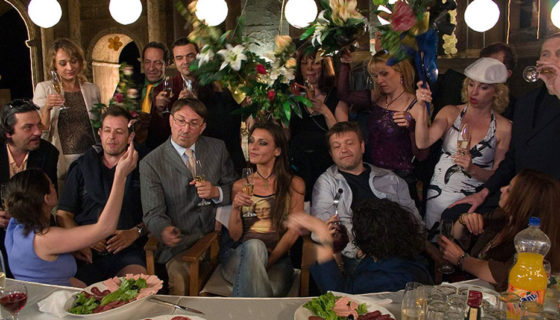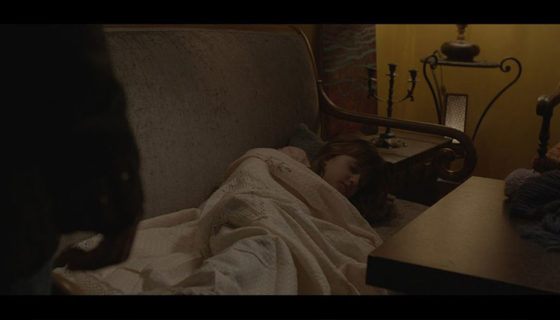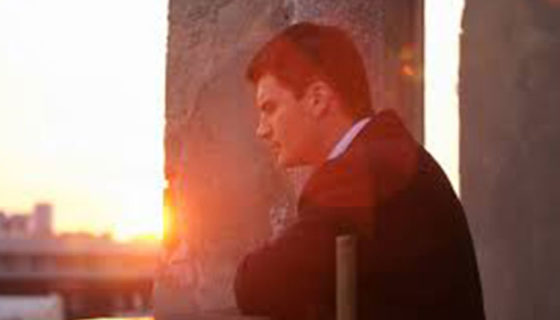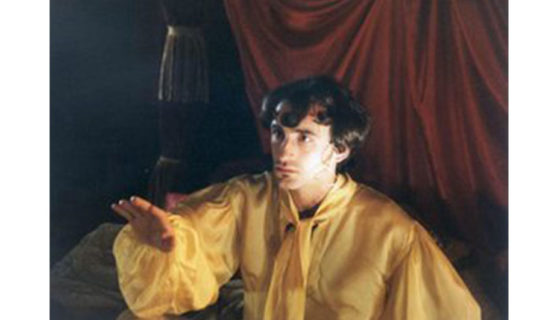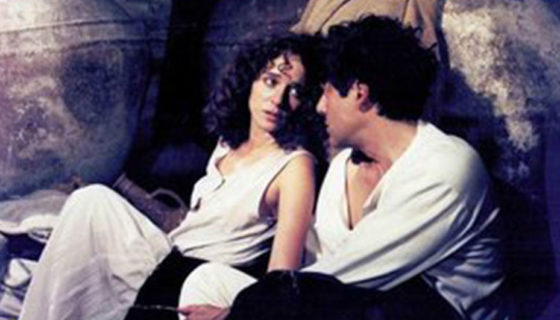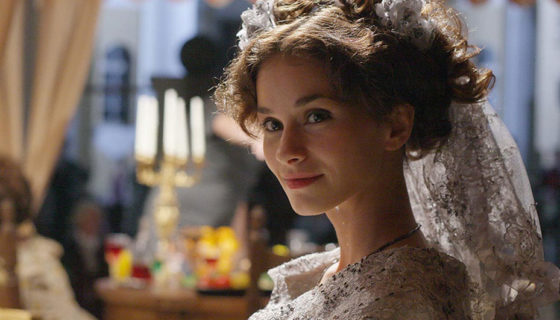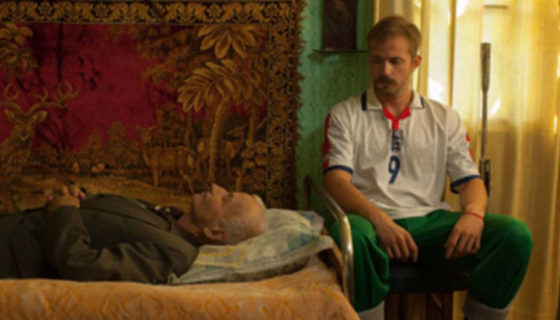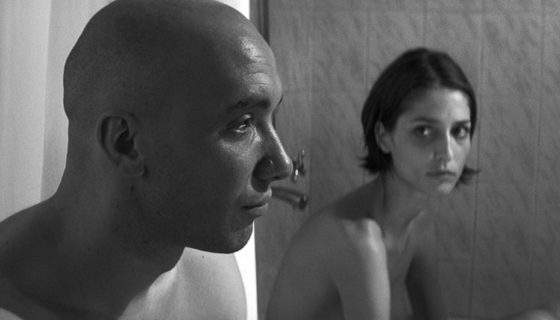- The Mother, the Father and their 16-year-old son live on a hill, at the end of a village. They wash hotel sheets for a living. The water supply, however, is inconsistent and they often find themselves without a supply. A couple of drillers, a father and his daughter, arrive, in order to solve this problem. The family’s harmonious world shatters into pieces. Everyone loves and hates everyone else. The thirst for love is so great that only death can quench it.
- Despite all in her life looks all right, Margita cannot find her niche in the world. She feels a huge emptiness inside her and that bothers her all the time. Anxiety keeps her grasped during the whole time she is awake. Only in her dreams she feels safe and secure. This is another paradox, because in her dreams she visits an unknown place and does things that she would normally consider wrong. The mystery of those dreams does not leave her in peace. Looking for some more about their meaning on the Internet, she finds another woman, Manca, who has night dreams about the same place and doesn’t know why. The two of them agree to meet in Sarajevo to try and discover what makes them dream about the city.
- The father of three grown sons has remarried and his sons all have their own separate lives. When their father announces he is leaving for America they move into his house in an attempt to forge new links of intimacy with one another. However, with the appearance of Maria, their illusions of America are shattered. They discover that their father has not in fact emigrated but is living in a nearby village. Their next dramatic meeting questions the search for a solution to the problems of reality in illusions. This film poses philosophical questions about the existence of God, the meaning of life, or death, or truth… It offers the hope that one day along the way we will discover a common meeting place.
- is a love story, dynamically told in the style of an adventure drama. The name stems from the game pin-ball and means a full blockage. The main character, Stash along with three of his friends dreams of opening their own bar with pin-ball machines, pool tables and cool music. The accidental meeting of Stash and Becky leads to a dangerous adventure, which puts the characters into a real-life tilt situation.
- is a biting satire of an aimless society. It is fraught with tragic-comic situations in which laughter hides the tears but offers food for thought! is a Bulgarian train swaying between the two extremities of sarcasm and self-irony in an attempt to demythologize the main values of Bulgarian society. It is a colorful kaleidoscope of Bulgarian morals revealed in a journey of hope.
- The 1950s. A widow is raising her three children but has a soft spot for her only son. The first signs of the son’s “peculiarity” appear early on: clashes with the family, a break with social role models, and friendships with individuals of the same sex. His passion for dancing leads him to Paris and his passions to bisexual relationships. The 1980s. His return to Greece is a letdown. His failure as an artist and the further deterioration of his relationship with his mother lead him to extreme decisions: streetwalking on Syngrou Avenue, working as a dancer in a transvestite club, prison, a sex-change operation. His mother has a hard time keeping up with the changes in his life. The 1990s. The happiness he dreams of does not come true. The end is tragically liberating.
- Mila, a bride on the run, stumbles upon a ghost town in the middle of the desert whilst trying tho escape from her murderous husband-to-be. This surreal landscape has served once as a setting for Sergio Leone’s spaghetti westerns, so its local inhabitants still dream of being film extras. When Mila gets a job as a housekeeper for a local eccentric lady, she soon discovers that she is actually working for the true Claudia Cardinale herself. Those women become friends and find common strength to face the demons, both past and present. Soon enough their duo is supplemented with a romantic cowboy, vying for the young woman’s lonely heart, and an Indian mystic eager to lead them out of the desert. At this moment the boundary between reality and cinema begins to fade. When the villain appears, everything becomes just “like a movie“.
- The spring of 1945. The war is still going on, but in Bulgaria the communists have already seized the power. The new rulers do justice according to their personal interests. This is the beginning of the era of Communism in Bulgaria – spiritual poverty, expropriation, destroying of the intelligentsia. In this chaos the main character, an actress fallen on hard times, wants to preserve her social status by any means. She claims to be a Communist activist and, in order to gain access to the theatre even shows a photo with Georgi Dimitrov’s dog. However, in order to survive, she has to resort to betrayal…
- In the late 1970s, cameraman Anton Krastev and his wife Diana are separated by the Iron Curtain: she has fled with their son Antoan to Western Berlin, leaving Anton behind in Bulgaria. Anton adores his job. He works with the best film director, who is a high-ranking Communist. The State Security Services are keeping a zealous eye on Anton, putting an end to Anton’s relation with his wife. Torn apart, Anton and Diana go from love to alienation to hatred. Anton’s influential friends are toppled and he loses everything that he’s ever loved: his work, his wife and his son. Thirty years later, Anton shoots the story of his own life. But those who now direct the movie are the same people, who have once persecuted him.
- This is a tragic comedy about the absurdity of one day in Elena’s life – whose job is working on the percussion press WAGNER of 1933 – about quite a common day in her life, in which her dream comes true. She gets an apartment on an installment plan. In this inclement day of November, she goes to have a look at her future property. Her happiness brings a soporific languor to her and she soon falls asleep in the empty flat. She wakes up late in the night feeling very hungry. So her trip up and down the floors of the block begins in search of a piece of bread. This is a story about the imaginary aims and ideals that will never come true.
- Anatoly lives with his mother near a coalmine. The miners come to eat in her pub at midday. Sometimes, when another drunk admirer starts kicking up a row outside the window, he protectively places himself in front of his mother. He's unsure what he wants to do with his life, spends hours daydreaming on his bed or cycling through the fields. When he finds himself being swindled again by brisk Maragita at the market, all he can do is gaze at her from afar. But everything has its time, and at some point Anatoly takes the initiative. A quiet and touching tale of coming of age.
- A film about the unknown life of the distinguished Bulgarian writer Yordan Yovkov in his capacity of a soldier, correspondent, friend, missionary and chronicler of the agony, sufferings and yearning of the ordinary men in wartime. Small pieces of melodramatic stories at the war fronts, which the writer actually experienced and wrote about…
- Republic of Macedonia after the disintegration of communist Yugoslavia. A woman has decided to speak out after forty years of keeping silence. The revealing of secrets, which have been kept very carefully for such a long time, stirs commotion among the powers that be. And they decide to take action. Warming up Yesterday’s Lunch is a film about events in which the line between good and evil has been completely blurred. The characters that refuse to accept this fact are destined to pay a high price.
- 26 young boys and girls, set on a professional carrier in theatre, face an invisible selection committee. What answers could rescue them from the awful manipulations so that not to miss the great chance of their life, their only life? This is the story of the film "Which Way Now?" made 20 years ago. And here they are today, at a cocktail party to celebrate this emblematic anniversary in their life. Tonight memories, personal clashes and striking sincerity alternate with bursts of euphoria and nostalgia. The characters compare their former hopes to their present aspirations, the folly and enthusiasm of youth to the everyday life in the present. How much have they succumbed to routine, depression and the unavoidable wrinkles cut in their faces in the course of these 20 years? Which way today?
- The young and ambitious prosecutor Christian is surprised to be assigned a sensitive case involving an older colleague who has been accused of corruption. A case that could have been a springboard for his career turns out to have the opposite effect. The accused asserts his innocence, but Christian’s superiors force him to bring the man to trial – even without evidence. The prosecutor’s efforts to bring truth to light leads him to discover a major plot. The case is taken away from him; he is suspended and effectively silenced. The system hits back with a vengeance and pulls the rug from beneath the young man’s feet.
- This is a story about a fantastic world where magic and miracles are an integral part of reality. Skilled wizards promote the development of their secret science while ordinary people can only suspect its existence and the real place it occupies in their life. The events the film relates are unleashed by the unhealthy ambition of a genius who searches for conquering the world – a none too uncommon occurrence up to now in any world, known or unknown.
- Evagoras is a family man who lives in Cyprus. He has five daughters and secretly longs for a son. So he gives Saint Andreas his word of honor that if he acquires a son he will walk all the way to the Saint’s monastery and be there on the patron Saint’s day. He finally acquires a son and must now keep his word to the Saint. Before he sets out on the long trek from one end of Cyprus to the other, his father, who is a priest, admonishes him: “My son, the road ahead is full of temptations. Take care, for you must be clean and pure when you reach the Saint!” Evagoras promises but, unfortunately, in the course of the journey, while trying to do good, he ends up committing every kind of sin…
- The film is a romantic comedy, inspired by the fairytale word of Hoffmann’s phantasms. A small antiquarian bookshop has survived as if by miracle amidst the centre of an enormous modern city, squeezed between glass and concrete. The keeper and a few visitors (true friends) are very much like Hoffmann’s characters. The action alternately takes place both now and in the past, diving into the parallel worlds of the reality and the magic.
- The story unfolds in one night. The main character, the Moth is freed on parole after spending time in prison on wrongful conviction for a murder. He was sent to jail shortly before the Bulgarian communist coup of 1944, and now finds himself in a new and alien world – the totalitarian Sofia of the 1960s. All hell breaks loose as soon as he walks out of jail.

